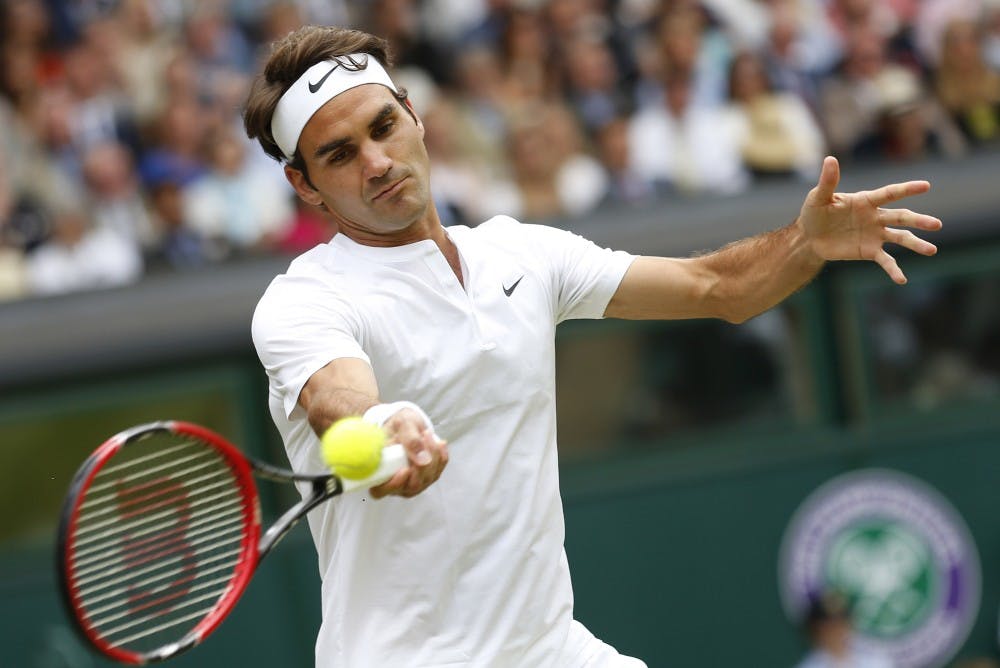“Tennis” and “scandal” are two words we rarely hear in the same sentence.
As a former captain of my high school’s tennis team, I’m proud of my sport’s reputation. Tennis’s knack for avoiding bad publicity is the result of several factors — strict drug testing, equal opportunities for men and women, heavy fines for indecent behavior and superb role models at the top of the game such as Roger Federer and Serena Williams.
Tennis does, however, have a glaring ethical weakness: the sports individualistic nature, in conjunction with extremely low earnings for the vast majority of players, makes tennis athletes unduly susceptible to the temptations of corruption.
Earlier this week, BuzzFeed News and the BBC jointly leaked a document containing compelling evidence suggesting that 16 top-level tennis professionals have been engaging in “match-fixing.”
To put it simply, it appears that high-rolling Russian and Italian gamblers have been tracking tennis players down in their hotel rooms and paying them large sums of money (often over $50,000) to intentionally lose sets, and even entire matches.
Packed @AustralianOpen media room waiting for presser on tennis match fixing allegation story breaking today pic.twitter.com/Hsw2p0V7bc
— Pam Shriver (@PHShriver) January 18, 2016
Out of respect for the fact that there isn't concrete proof that the suspected players are guilty, BuzzFeed News and the BBC have decided not to release the players' names.
Personally, I'm more interested in why this problem exists.
Here's my best guess: With the way tennis' economy is currently structured, the top players are some of the best-paid athletes in the world, while only a few hundred tennis players are able to make any kind of a net profit at all. In 2015, Roger Federer made $67 million. That's $46 million more than Stephen Curry will make this year (including endorsements). But for the bottom 99% of tennis players, average prize money earnings are about $22,600. I'm not sure what Bernie Sanders's least favorite sport is, but I'm willing to bet that it's tennis.
Because we don't know who the offending athletes are, it's tough to draw conclusions about the players' motivations for taking the bribes. Still, I think it's a good assumption that most of the money was going to members of tennis's 99%.
On the other hand, BuzzFeed has stated that the list of suspects does include winners of Grand Slam tournaments.
The top-ranked tennis player in the world, Novak Djokovic, has publicly said that, in 2007, he was offered (and turned down) $200,000 to throw one of his matches. As one of the world’s highest-paid athletes, Djokovic had the luxury of being able to say no.
However, a struggling player who doesn't have millions of dollars in sponsorship checks to pay for travel, coaching, and other expenses, would have had a much more difficult decision to make.
In my opinion, the best way to make sure this doesn't happen again is to revamp the way prize money is distributed. The men's and women's singles winners of this month's Australian Open will each take home $3.8 million.
If some of that money can instead be awarded to the less successful players, including those who weren't able to qualify for such a prestigious event, it could do a lot of good for preventing corruption.
I don't think the very best players will mind sacrificing a comparatively small amount of prize money if it means preserving the integrity of the game they love.
Related Links:
Goran Dragic's crusade against FIBA corruption a legitimate concern
FIFA, an enemy to soccer's ideals
Reach the columnist at cmfitzpa@asu.edu or follow @CodyFitzStories on Twitter.
Editor’s note: The opinions presented in this column are the author’s and do not imply any endorsement from The State Press or its editors.
Want to join the conversation? Send an email to opiniondesk.statepress@gmail.com. Keep letters under 300 words and be sure to include your university affiliation. Anonymity will not be granted.
Like The State Press on Facebook and follow @statepress on Twitter.




